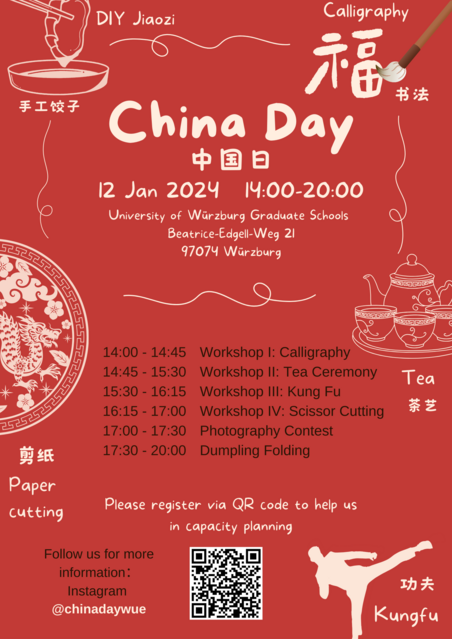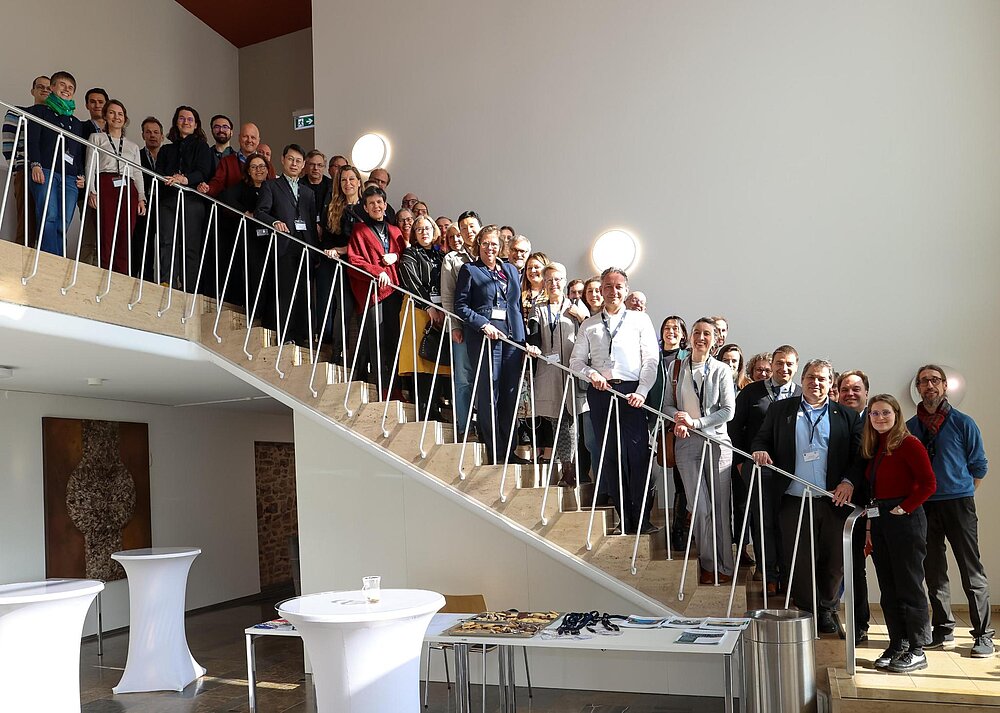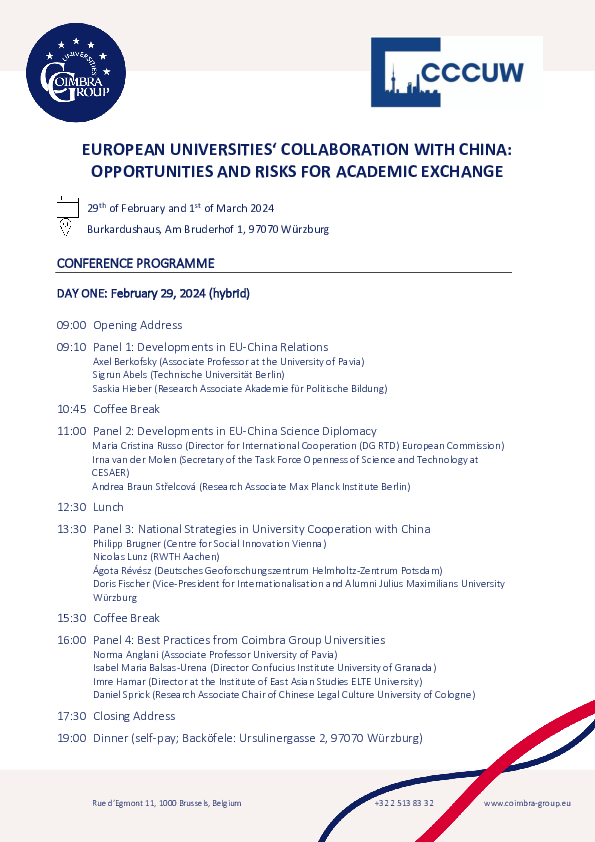2024
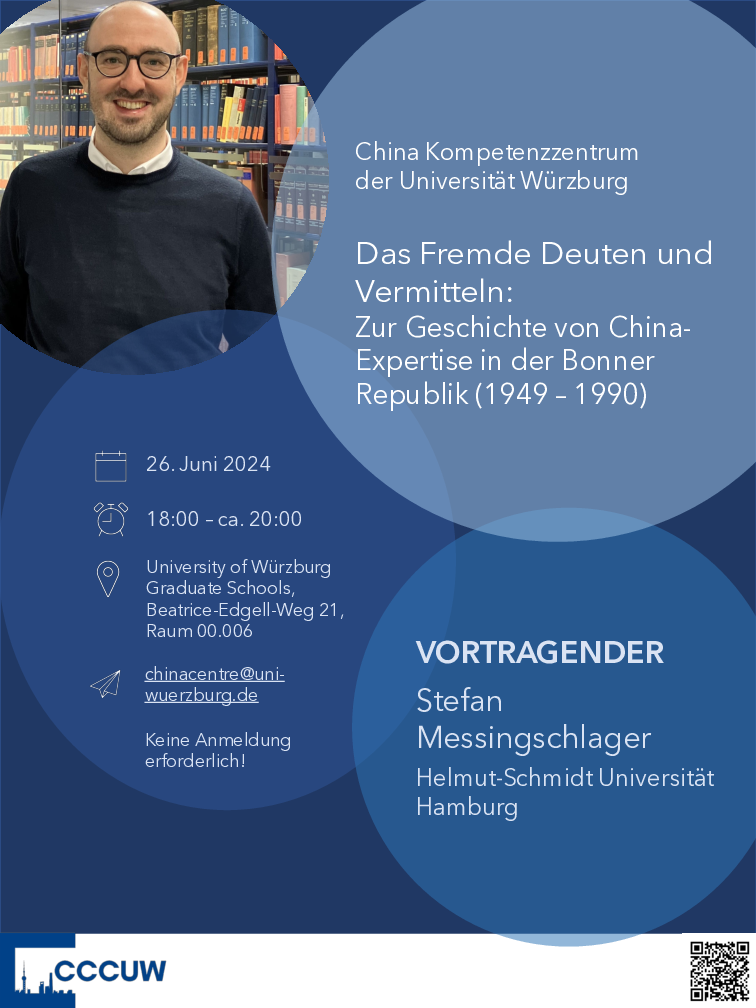
Until the early 1970s, the People's Republic of China was considered a kind of ‘black box’ in Western societies - an emerging superpower about which there was only scant information after the People's Republic had sealed itself off from the West. From the early 1950s, Western journalists, academics and diplomats filled this radio silence with their interpretations and analyses, which became an important resource in shaping the relationship between the Federal Republic of Germany and the People's Republic of China. The Hamburg historian Stefan Messingschlager suggests that this phenomenon should not simply be approached as a history of perception; rather, this transcultural mediation in public discourse, in business and political (consulting) could be made tangible as a specific practice of ‘China expertise’. Using selected examples, the speaker will offer insights into a dimension in the history of German-Chinese relations that has received little attention to date, illustrating that China expertise has always been the subject of attributions and that China experts outside of sinology in particular have played a central mediating role.
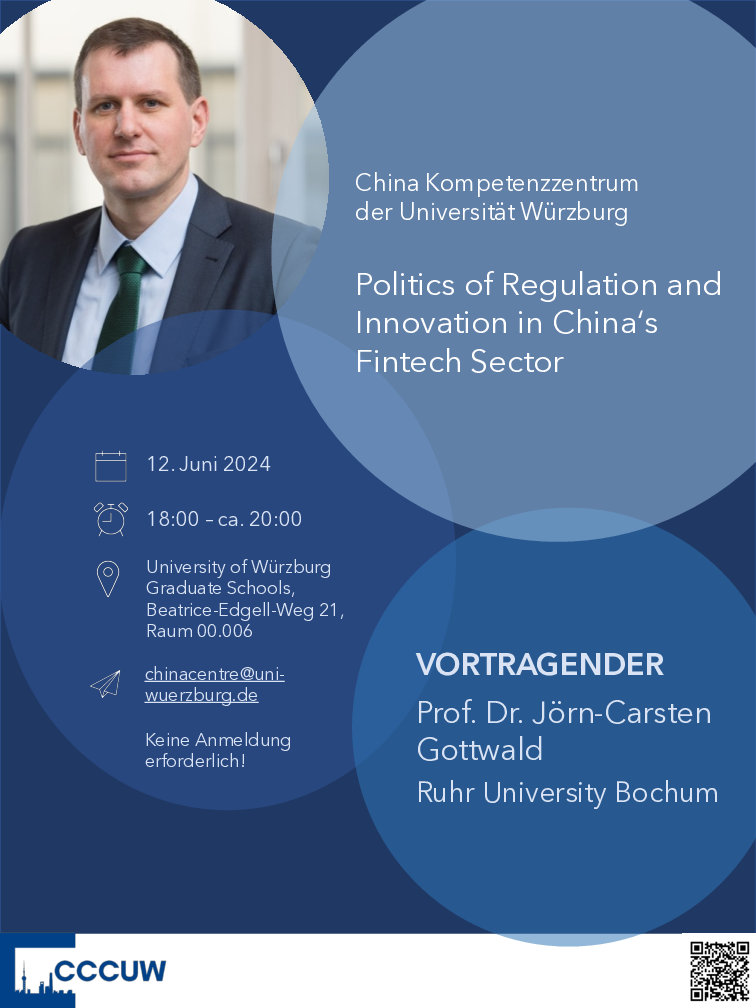
On 12 June, we had the great pleasure of welcoming Prof. Jörn-Carsten Gottwald from Ruhr University Bochum to give a lecture on the regulation of fintech in China. The People's Republic of China is investing heavily in the expansion of its national innovation system. A unique combination of measures is aimed at bringing Chinese companies to the forefront of global technological developments. One area in which Chinese companies are highly innovative and successful is financial technology, including internet-based financial services (fintech). However, a closer look at China's "fintech explosion" offers some important insights into the specifics of regulatory and innovation policy in a sector that has developed rapidly outside the official policy framework and now faces a diversified party-state strategy for consolidation and development.
Jörn-Carsten Gottwald holds the Chair of East Asian Politics at the Ruhr University Bochum. He has worked at the Free University of Berlin, the University of Trier and University College Cork, Ireland, and has held visiting professorships at Fudan University Shanghai and National Cheng-chi University, Taipei. He has published on European policy towards China, the politics of financial regulation and China's political economy. His current research focuses on issues of financial regulation and innovation in China and Europe and the changing dynamics in bilateral relations.
We thank Prof. Gottwald for the exciting lecture and the ensuing discussion!
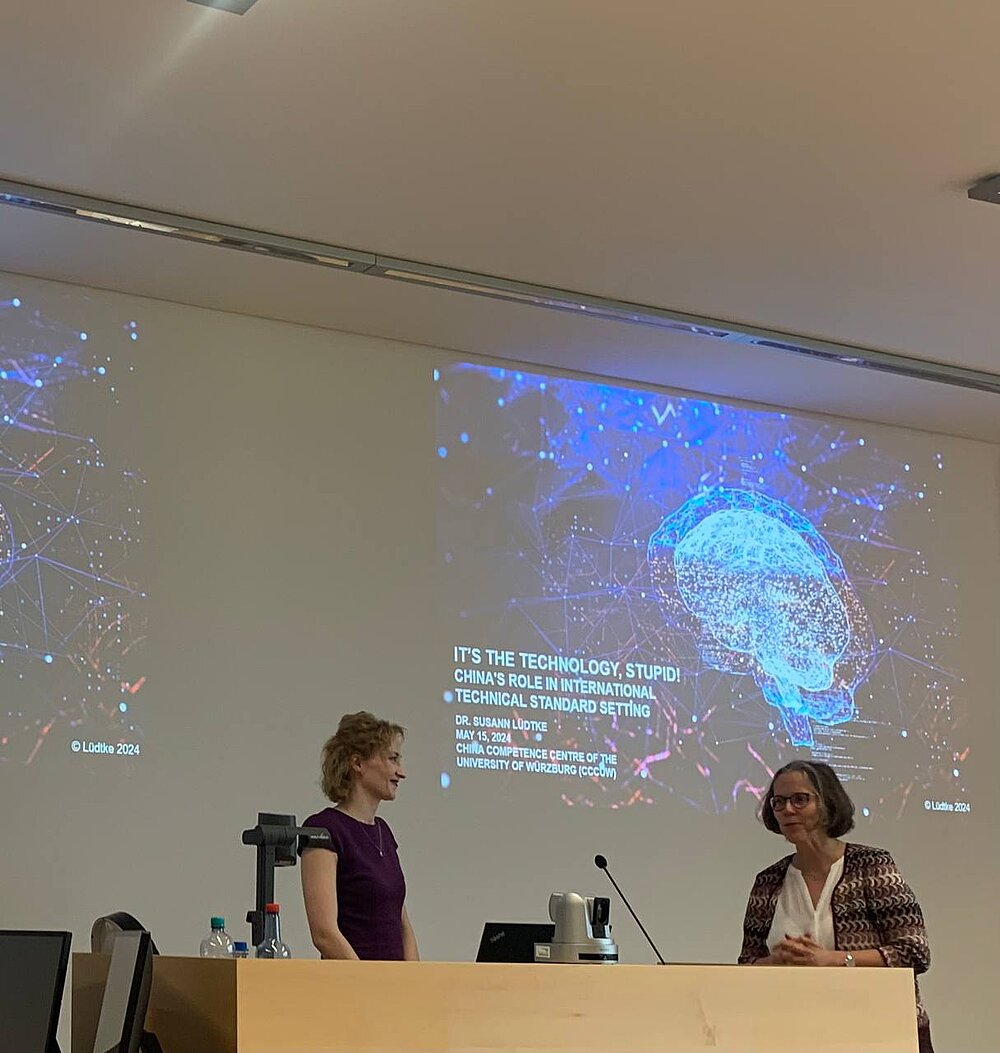
Many thanks to Dr Susann Lüdtke for a presentation on technology standards!
Dr Lüdtke provided a comprehensive overview of the standardisation system in China, highlighting the limitations of a state-centric approach and the ongoing reforms in the area of technical standard setting. She also highlighted China's increasing involvement in international standardisation. Of particular interest were the research findings that challenge the notion that China is developing national standards with national content that deviate from international standards or impose additional national requirements. In their opinion, there is a certain scepticism towards China's intentions to deviate from established standards, as China actively participates in their development in order to facilitate market access. The principle of co-operation in technical standards makes the deliberate development of deviations more difficult. Many thanks to everyone who took part and we look forward to the upcoming events!
Background
In the European Commission's latest strategic documents, China is described as a "co-operation and negotiating partner, economic competitor and systemic rival". While co-operation with China is intense and valued in many areas, concerns about China's motives for co-operation, growing awareness of the risks of dependency and US pressure on Europe in the context of US policy on China-US rivalry have contributed to more recent discussions on how Europe should position itself vis-à-vis China. Corresponding discussions, lobbying and political debates are increasingly focussing on the area of scientific and technological cooperation as well as cooperation between European research institutes and universities with China.
Purpose
Against this background, this conference invited the 39 member universities of the COIMBRA group to learn about the state of the discussion on EU-China relations, to share their experiences with the relevant national and EU policies, and to discuss ways to enable universities to continue co-operation with China while avoiding the risks involved.
Programme
On 29 February and 1 March, 65 participants gathered in Würzburg and a further 25 interested parties gathered online to share their experiences of cooperation with partners in the People's Republic of China at this conference. Scientists and research support staff from Salamanca to Turku travelled to Würzburg to attend this two-day conference in the Burkardushaus. After the welcome address by the President of JMU, Prof. Dr Paul Pauli, four panels were held with contributions on (1) developments in EU-China relations, (2) developments in science diplomacy between China and Europe, (3) national strategies in university cooperation with China and (4) approaches at European universities. The content of these panels was provided by eminent experts in these fields, including Maria Cristina Russo, Director of International Cooperation at the European Commission. The CCCUW would like to thank all speakers for their active participation in the conference!
Impact
On 1 March (day 2 of the conference), the participants then worked in small groups to record the most relevant and formative findings of the previous day. Posters were produced that will provide important reference points for the elaboration of the conference results in the areas of science, science policy and studies. Based on the results, the CCCUW, in collaboration with the Coimbra Group, will produce a policy brief that will be distributed among the 39 members and can also be submitted to the EU.
On behalf of the Julius Maximilians University and the Coimbra Group, the CCCUW would like to thank all participants for the exciting and positive discussions! We look forward to future conferences on the topic of co-operation with China on a European level.
On 12 January 2024, the CCCUW organised the first 'China Day' at Julius Maximilians University as part of the Case Study Seminar in the China Business and Economics degree programme. Held in room 00.006 of the Graduate School, the China Day offered talented students with hobbies associated with China a platform to share their skills with others. The planning phase resulted in four workshops:
Calligraphy
We will first briefly introduce Chinese calligraphy and then practise "龍" and "福" together. After practising, we will write the character on red paper to make it your little artwork from this workshop. You can then take it home with you as a souvenir.
Tea Ceremony
Join us for the "China Day Tea Ceremony Workshop". Immerse yourself in the rich history of tea, discover different varieties and experience a traditional tea ceremony. Don't miss out on this unique cultural experience!
Kong Fu
Discover the fascinating world of Kung Fu and experience the powerful fusion of art and combat! Not only an effective form of self-defence, but also a unique way to strengthen body and mind. Immerse yourself in the centuries-old Chinese martial arts tradition and experience the physical and mental discipline that characterises Kung Fu.
Paper Cutting
Chinese paper art embodies cultural narratives and expresses themes of happiness, prosperity and cultural motifs that have remained constant throughout the centuries. Join us on this impressive journey into the heart of Chinese art tradition. Whether you are a beginner or an enthusiast, this workshop promises to be a captivating experience, fostering creativity and an appreciation for the artistry embedded in each meticulous cut!
At the end of the day, a photo competition (winning picture below) was held with the best pictures of the participants from China and Chinese dumplings were prepared. These were of course eaten afterwards.
The CCCUW would like to thank the students of the Case Study Seminar for the excellent organisation, the participants for their enjoyment and commitment during the workshops and the Graduate School for the facilities! We look forward to more China Days in the future!
